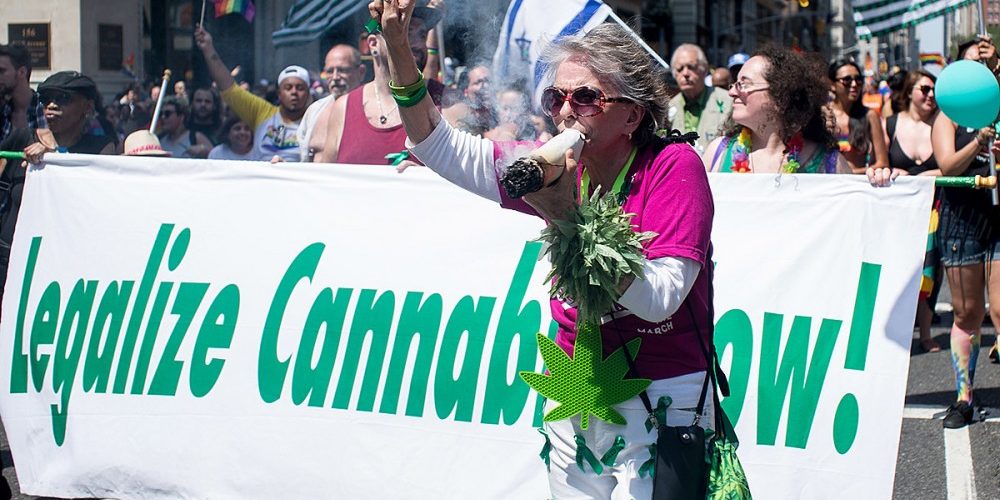Marijuana legalization bill passed by House of Representatives
With five states voting for marijuana legalization measures in the November elections, and Oregon decriminalizing possession of small amounts of any drug, the country continues to move in the long-overdue direction of treating drug use as a health issue rather than a crime. Continuing on that momentum, the House of Representatives has, for the first time, passed a bill to decriminalize marijuana at the federal level. MORE, the Marijuana Opportunity, Reinvestment, and Expungement Act, would also put a process in place to expunge previous convictions on marijuana charges, and authorize a tax that would be used to invest in services like job training, legal aid, substance abuse treatment, and small business loans.
House Judiciary Chairman Jerry Nadler pointed to 15 states, and Washington DC, that have already legalized recreational marijuana, and 36 states where medical marijuana is legal. The bill, he said, "would reverse the failed policy of criminalizing marijuana on the federal level and would take steps to address the heavy toll this policy has taken across the country, particularly on communities of color."
"For far too long, we have treated marijuana as a criminal justice problem instead of as a matter of personal choice and public health," he continued. "Whatever one's views are on the use of marijuana for recreational or medicinal use, the policy of arrests, prosecution, and incarceration at the Federal level has proven unwise and unjust. I have long believed that the criminalization of marijuana has been a mistake, and the racially disparate enforcement of marijuana laws has only compounded this mistake, with serious consequences, particularly for communities of color."
Oregon Democratic Representative Earl Blumenauer, one of the bill's original sponsors, wore a marijuana-printed face mask as he presided over debate on the bill on Thursday. "I've been waiting for this moment for 47 years," he tweeted. "To preside during this debate is a true honor."
As you can probably guess, voting on the bill was split almost exclusively over party lines, with most Democrats voting for it and most Republicans against. The final tally was 228-164, with five Republicans and one Independent voting in favor, and six Democrats voting against it. The bill still needs go through the Senate (which is currently controlled by the Republicans, though that could change based on the outcome of the Georgia runoff elections in January) before it gets the chance to pass into law.
"The House of Representatives is spending this week on pressing issues like marijuana," Mitch McConnell said from the Senate floor. "You know, serious and important legislation befitting this national crisis." McConnell, meanwhile, has yet to bring a COVID relief bill previously passed by the House to a vote.
